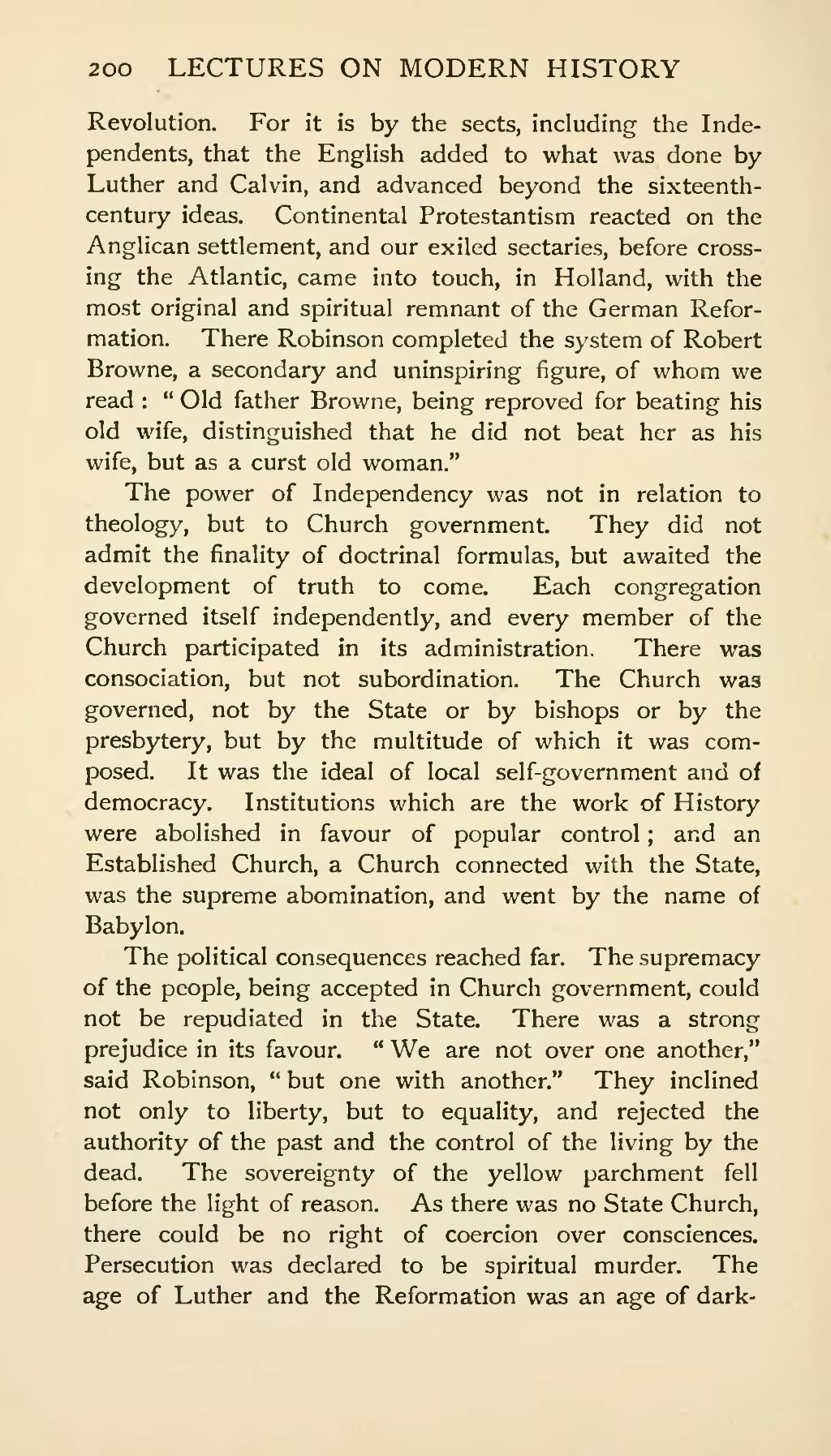Revolution. For it is by the sects, including the Independents, that the English added to what was done by Luther and Calvin, and advanced beyond the sixteenth-century ideas. Continental Protestantism reacted on the Anglican settlement, and our exiled sectaries, before crossing the Atlantic, came into touch, in Holland, with the most original and spiritual remnant of the German Reformation. There Robinson completed the system of Robert Browne, a secondary and uninspiring figure, of whom we read: "Old father Browne, being reproved for beating his old wife, distinguished that he did not beat her as his wife, but as a curst old woman."
The power of Independency was not in relation to theology, but to Church government. They did not admit the finality of doctrinal formulas, but awaited the development of truth to come. Each congregation governed itself independently, and every member of the Church participated in its administration. There was consociation, but not subordination. The Church was governed, not by the State or by bishops or by the presbytery, but by the multitude of which it was composed. It was the ideal of local self-government and of democracy. Institutions which are the work of History were abolished in favour of popular control; and an Established Church, a Church connected with the State, was the supreme abomination, and went by the name of Babylon.
The political consequences reached far. The supremacy of the people, being accepted in Church government, could not be repudiated in the State. There was a strong prejudice in its favour. "We are not over one another," said Robinson, "but one with another." They inclined not only to liberty, but to equality, and rejected the authority of the past and the control of the living by the dead. The sovereignty of the yellow parchment fell before the light of reason. As there was no State Church, there could be no right of coercion over consciences. Persecution was declared to be spiritual murder. The age of Luther and the Reformation was an age of dark-
